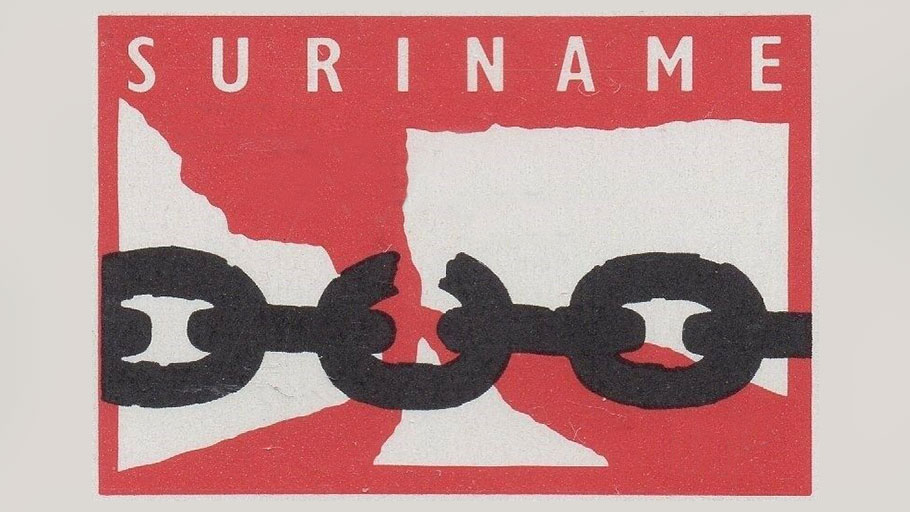For many years Surinamese people of African descent, whose ancestors worked on the plantations in the colony of Suriname, celebrated and commemorated ‘Keti Koti’ on July 1 as “Emancipation Day”.
In recent years they have been doing this more and more together with others from our Republic. Many have never considered why ‘Keti Koti’ is always celebrated and/or commemorated on July 1. Also, many have never considered why the ‘Keti Koti’ commemorations never focus on the date or year when the first ancestors of the Surinamese of African descent set foot in Suriname, and what these ancestors have done over time and have contributed to the construction of our nation at various levels and sectors.
Due to conditions in the cosmos, this year it will not be possible to celebrate July 1, 2020 as ‘Keti Koti’ day, as many in society have done over time. This makes it possible to pay full attention to the commemoration of this day in the form of reflection, especially since according to the National Reparation Commission of Suriname (NRCS), on July 1 there is nothing to celebrate about.
The great deception of July 1, 1863
In an announcement dated October 3, 1862, the then Government Secretary J.E. Wesenhagen made a statement to the “slave population” on behalf of the then Governor Reinhart Frans van Lansberge, which included the following. The proclamation was done on behalf of the then Dutch King Willem III:
- On July 1, 1863, enslaved Africans, our ancestors, would be free after centuries of slavery;
- The expectation that the liberated would fulfill their duties as free people in an orderly and subordinate manner to the administration;
- The liberated would receive fair wages to support themselves and their families.
These were the three main promises that were included in the proclamation but were absolutely not fulfilled by the colonial administrators afterwards. Instead, most of the liberated had to continue producing sugar, coffee, cotton, cocoa and other goods for the benefit of the Dutch economy for another ten years in the context of starvation wages and racist relations.
Moreover, genocide was systematically committed against our ancestors during colonial times. There is, therefore, no rational reason to celebrate “Keti Koti”, in addition to the fact that the date of July 1 has been set by members in the Senate in the Netherlands; a date that is in no way related to the years of struggle that the Africans and their descendants have fought under the leadership of Ganimet, Baron, Boni, Joli Coeur, Kromantikodjo, Aricon, Kwami, Monday, Ponja, Joosje, Wierai, Aloekoe, Broos, Arabi and many others
Recovery payments to planters
Our ancestors have worked on plantations for generations, certainly from 1630 to 1873, under degrading conditions and during this period ensured that billions of Euro’s worth of mostly agricultural raw materials flowed to Amsterdam, in particular. The so-called planters, who never once planted a plant in Suriname, received compensation from the Dutch government for the release of the enslaved, even before the formal abolition of slavery. In total, the amount of 9,867,780 florins has been distributed to the holders of enslaved Africans, representing an amount of purchasing power in Euros of 237,743,031. For this amount, 32,911 Africans were eventually bought free. These 32,911 enslaved Africans around July 1, 1863 never received a single cent as compensation or start-up capital from the Dutch government, or from any third party. In contrast to the indentured servants from Asia who have remained in Suriname, they have received no land, no tools and no starting capital. They were simply left to their own devices and had to figure it out for themselves.
Apologies and reparations for the crimes
At the UN International Conference against Racism, Racial Discrimination, Xenophobia and Related Intolerance held in Durban South Africa in August / September 2001, the then Ambassador of Suriname, Wim Udenhout, called on behalf of the Surinamese government for: “….. repairs and compensatory measures which are indispensable for acknowledging for past wrongs… .. “.
No subsequent Surinamese government took any other position on the issue of repairs.
The National Reparation Commission of Suriname is of the opinion that the 1 July, 2020 commemoration could take place in the context of the following issues:
- Investigate when the first African set foot on Surinamese soil. Was it in 1498 (522 years ago) with the arrival of the Spanish occupier Alonso de Ojeda; in 1630 (390 years ago) with the arrival of the English occupier Capt. Marshall or in 1650 (370 years ago) or with the arrival of Francis Willoughby from Barbados, in connection with the colonization by the English? The NRCS is in favor of commemorating this day, but also commemorating the day of the real emancipation of slavery, namely, July 1, 1873;
- The choice with support from the entire African Surinamese community, which can be regarded as a “freedom day”;
- The collective preparations that must be made in our country in connection with the apologies and repairs that the Dutch government and/or the Municipality of Amsterdam and/or the Municipality of Rotterdam wish to make on 1, July 2021 in the context of the past Dutch slavery. For this, the NRCS will be instrumental in organizing broad national support in our country.
The NRCS is taking this opportunity on July 1 to express its solidarity with the widespread international movement against racism and racialized violence and with the “Black Lives Matter” movement.
Finally, the National Reparation Commission of Suriname wishes the entire Surinamese community, wherever in the world, a reflective July 1, 2020.
The following organizations support this July 1 statement from the NRCS:
- Landelijk Platform Slavernijverleden (Nederland)
- Comité Boni (Nederland)
- Comité Boni (Suriname)
- Stichting Grani (Nederland)
- Stichting Instituut Win voor Multiculturele Ontwikkeling (Nederland)















